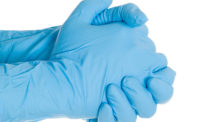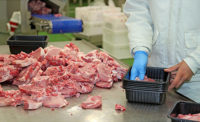
By Tim Biela, AFA Foods
Businesses are spending some serious time and money trying to limit the H1N1 flu pandemic’s impact on operations. From showing videos on good hygiene to cross-training employees to cover for co-workers with critical jobs, there is a sense of urgency to ensure employees understand how to mitigate the risks of a flu pandemic in the workplace. Companies are even arranging for employees with flu symptoms or sick family members to work from home where possible, holding fewer in-person meetings, even discouraging handshakes. Hand sanitizers, disinfectant wipes and tissues are at the ready as companies across the world make keeping workers healthy their first line of defense.
In many countries, the term hygiene, in the context of food, is used in rather broad terms, to include the general topic of food and plant sanitation. In the United States, the term has a much narrower meaning, referring primarily to the personal cleanliness and habits of the food worker. To avoid confusion we should be using the term “personal hygiene” to relate to the circumstances surrounding the personal cleanliness of workers in general and to food workers where it is more appropriate.
The reason for the emphasis on personal hygiene heading into 2010 is obvious. With the recent emergence of H1N1 flu and the discussions about “pandemics,” and the corresponding potential effects on business functions and disruptions, personal hygiene has taken the front seat even at businesses that never paid much attention to it in the past.
Personal hygiene in any workplace is simple and can be broken down into several key areas for focus. These are: Personal habits, Hand-washing and Sanitation. There are primary concerns and controls in each one of these areas that can help any company better manage personal hygiene
Personal habits
Poor personal health and hygiene habits are often difficult to change. These poor habits are built over time sometimes a lifetime and are biased by socioeconomic status and how and where a person grew up. Changing personal attitudes is, in itself, a formidable challenge, but changing personal hygiene habits as it relates to cleanliness is even more the challenge. Employers typically do not like to discuss such topics, nor specifically enforce personal hygiene. However, it is evident that doing so can have a dramatic impact on a company’s ability to ensure that its business and customers are not affected by something such as a flu pandemic, which could potentially ruin a business.
Hand-washing
There is no personal hygiene habit that can be more effective at preventing the spread of infections than proper hand-washing. The skin surface is not only covered with bacteria, but it is constantly picking up more; including some potentially pathogenic bacteria as well as viruses. Proper hand-washing requires the proper tools and technique. Proper tools include warm water and antimicrobial soap. Proper technique means using both of those tools and scrubbing the entire exposed hand surface. If an employee follows up the washing with the use of an antimicrobial spray compound, employees will not be spreading potentially harmful bacteria and viruses.
Sanitation
Most businesses do not even think about sanitation in the work environment, unless they are in the food industry. However, office and personal spaces are sometimes even more prone to the spread of bacteria and viruses than the equipment in a food plant. Janitorial services empty trash and sweep or vacuum the floors, but how often do they sanitize contact surfaces that transmit organisms that can cause illness? How difficult is it to wipe down all door handles and frames or countertops and table/desk tops with antimicrobial wipes or solutions? Overlooked, these can be a major vector for transfer of organisms, so be sure you have a program in place to address these areas as well.
Here are some simple things to consider and use to improve personal hygiene:
TALK
Educate and train your employees. Tell them what you expect from them as it relates to personal hygiene and hygienic work habits. Training begins when an employee is hired, but it is imperative to conduct regular training to make sure employees understand that it is important every day. Management MUST walk the walk; not just talk about it, or it becomes an overlooked item of importance to any business.
SUPPLY
Make sure there are adequate sanitary supplies in restrooms and in office areas. This should include antimicrobial soaps, sprays and wipes as well as tissues.
ENFORCE
Conduct regular inspections of supplies and employee habits and behavior.
Poor personal health and hygiene habits are difficult to change. Training programs are the most effective means of emphasizing the need for good personal hygiene. These training programs should be supplemented with signs, posters and placards, but also with management commitment to employee health.
Good hygiene is little more than good common sense. Making sure it happens in your business environment every day can impact your bottom line and your ability to stay economically healthy. NP
Tim Biela is the senior vice president of operations and the chief food safety officer for AFA Foods, one of the largest producers of ground beef for commercial fast-food and casual-dining restaurants as well as retail groceries. Biela has been actively involved in food-safety technology and quality systems in the food industry for the past 25 years. He is a member of The National Provisioner’s Editorial Board.




Report Abusive Comment